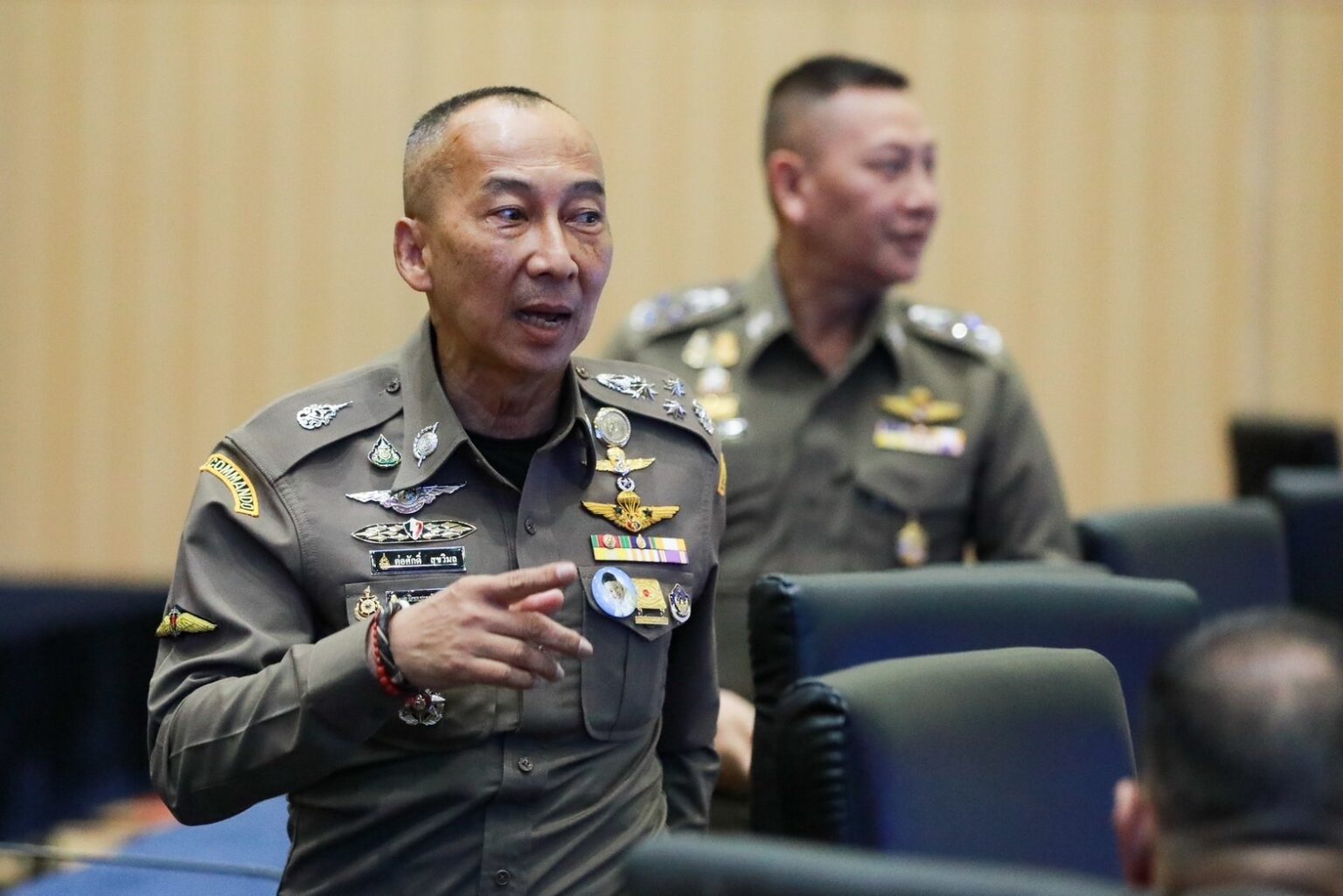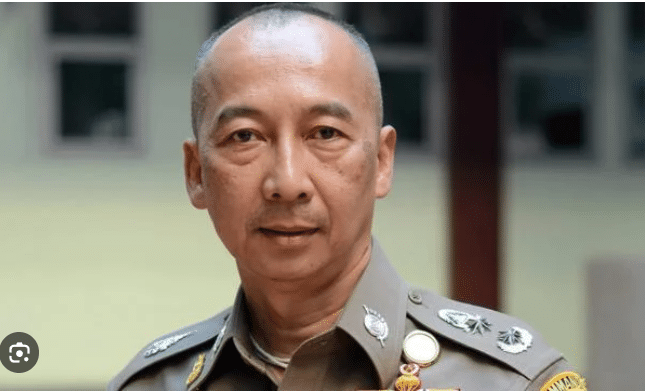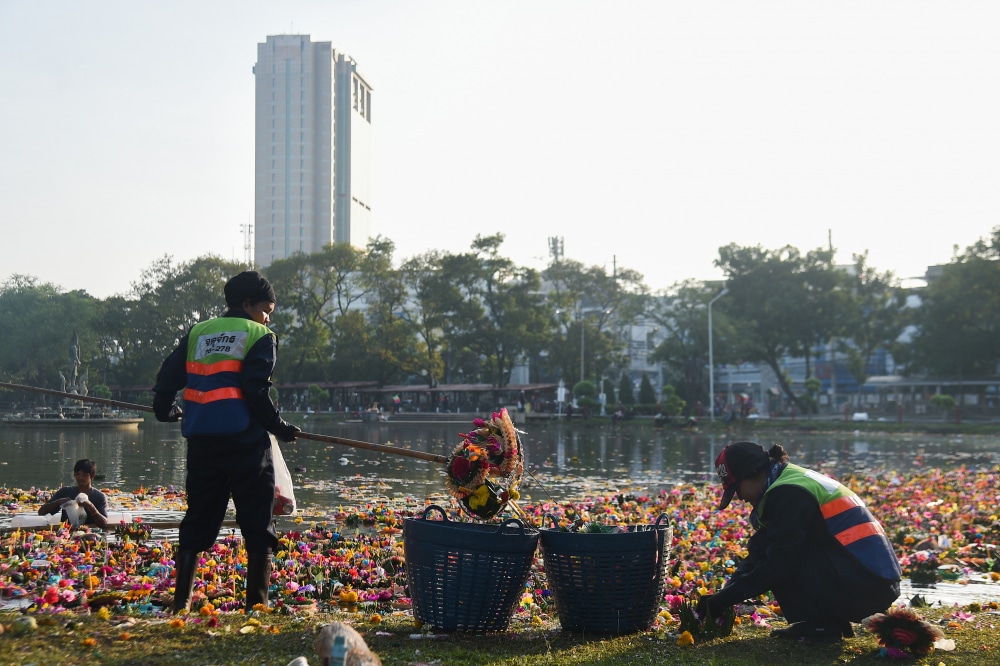The decision by the Police Commission on September 27th to appoint Pol. Gen. Torsak Sukwimon as Thailand’s 14th National Police Chief has added a layer of intrigue to the ongoing drama within the police department.
In the lead-up to this decision, a significant incident involving the Thai police had unfolded, which was widely seen as a manifestation of political conflict. The cyber police, accompanied by a commando team, conducted a raid on the residence of Deputy Police Commander Pol. Gen. Surachet Hakphan, popularly known as “Big Joke.” Surachet had gained notoriety for his involvement in investigating major crimes. During the raid, eight of his subordinates were charged with participating in an online gambling website.
Pol. Gen. Surachet, aged 53, initially resisted the search of his house on September 25, 2023. He vehemently claimed that he had become a victim of political maneuvering, emphasizing that he had never pursued the position of National Police Chief in any manner. He cited his second seniority in the role of Deputy National Police Chief as a reason for not aspiring to the top position.

However, the appointment of Pol. Gen. Torsak Sukwimon, aged 59 and with only one year of service remaining, contradicted Surachet’s assertion. Torsak, also known as “Big Tor,” is the least senior among the four candidates for the role of deputy police chief.
Pol. Gen. Torsak’s background reveals a journey marked by a diverse range of experiences. He was born on January 27, 1964, in Phetchaburi Province, Thailand, as the youngest of five siblings. Interestingly, he is the younger brother of Air Chief Marshal Sathitphong Sukwimon, who serves as His Majesty the King’s Royal Secretary and Secretary to the Royal Palace.
His educational journey began at Yothinburana School, and he later graduated with a bachelor’s degree from Thammasat University’s Faculty of Political Science, often referred to as the “Red Lion” of the 38th generation. Subsequently, he earned a master’s degree from Sripatum University.
Before embarking on his career in law enforcement in 1997, Pol. Gen. Torsak worked for the Caltex Oil Company, steadily climbing the corporate ladder and earning a monthly salary of up to 80,000 baht. After seven years in the corporate world, he made the bold decision to retire in pursuit of his childhood dream of becoming a police officer. To realize this ambition, he enrolled in a training program designed for individuals with degrees in law, political science, and public administration who aimed to become commissioned as 4th generation police officers.
Pol. Gen. Torsak’s journey within the police force commenced as a “Deputy Inspector” with the Special Operations Patrol Division 191. He then transitioned to the Crime Suppression Division and continued to rise through the ranks, including a tenure with the Tourist Police as an “inspector.” He subsequently moved to the Special Operations Division within the Crime Suppression Division, ultimately attaining the positions of deputy superintendent of Special Operations and Deputy Commander of Crime Suppression.
Before his appointment as National Police Chief, Pol. Gen. Torsak held the position of Deputy Commissioner of the Royal Thai Police. In this role, he was responsible for overseeing various critical departments, including the Centre for the Suppression of Intellectual Property Violations, the Centre for the Suppression of Illegal Logging, Deforestation, and Natural Resources, the Centre for the Suppression of Motor Vehicle Theft, and the Centre for the Prevention and Suppression of Road Racing.

On the day when the Police Commission announced Pol. Gen. Torsak’s appointment as National Police Chief, Pol. Gen. Surachet offered his congratulations to Torsak. He expressed his willingness to collaborate with the newly appointed chief, emphasizing that there were no conflicts between them.
This turn of events within the Thai police department adds an element of complexity and intrigue to the evolving landscape of law enforcement in Thailand. As Pol. Gen. Torsak takes on the role of National Police Chief, the dynamics within the department will undoubtedly continue to be closely observed and scrutinized.











